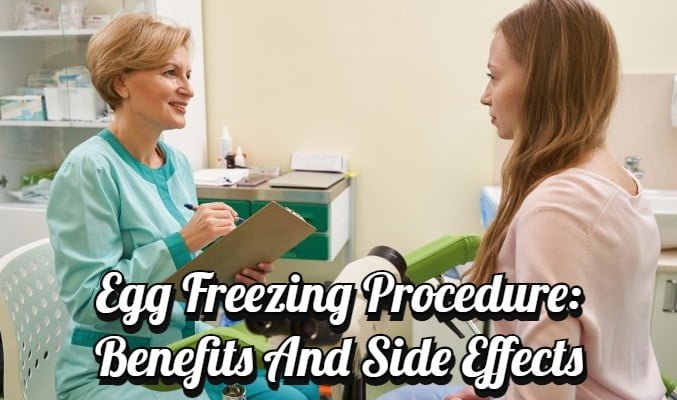- Make a call: +91-9903588155 / +91-8820250803

Egg freezing is a process that allows women to store their eggs in order to have the option of using them at a later date. It is also called oocyte cryopreservation.
The process involves taking eggs from your ovaries, freezing them, and storing them until you’re ready to become pregnant. When you’re ready to have a baby, you’ll use a lab to thaw the eggs and then fertilize them with sperm in order to create an embryo that you’ll implant into your uterus.
Some women choose to freeze their eggs for reasons other than infertility treatment — for example, some women freeze their eggs in order to delay pregnancy or extend their careers. Egg freezing is also sometimes used by lesbian couples who want children but don’t have access to sperm from a male donor (such as if one of the partners carries a gene mutation).
The egg freezing procedure begins with hormone injections that stimulate the ovaries to produce several mature eggs. Once mature, these eggs will be removed through an outpatient surgical procedure called egg retrieval.
A few days later, they are frozen using cryoprotectants (special solutions) at very cold temperatures of minus 196 degrees Celsius (minus 320 degrees Fahrenheit).
After being frozen and stored for several months or years, they can be thawed and fertilized from a donor sperm outside the body in special Petri dishes that mimic the environment inside a womb. The resulting embryo(s) can then be then transferred into a uterus.
So, egg freezing involves stimulating the ovaries with medication to produce multiple eggs at once and then removing them from your ovaries. The eggs are then frozen using liquid nitrogen and stored until you’re ready to use them.
There are several reasons why you may consider egg freezing. Here are some of them:
Whether you are trying to get pregnant or not, egg freezing can be beneficial for many reasons. Here are some of the benefits of Egg Freezing:
The side effects of egg freezing are not severe. However, they can be quite uncomfortable.
The most common side effect of egg freezing is bloating. You may experience some bloating in the first few days after your egg retrieval procedure. This is caused by the fluid that is injected into your ovaries during the procedure.
Other possible side effects include nausea, vomiting, and abdominal pain. These symptoms usually go away within a couple of days after your procedure but if they persist for more than a week, contact your doctor immediately as it could be a sign of a serious problem.
You may also experience pain in your lower abdomen or back during recovery from the procedure. The pain should lessen within a few days after the procedure.
It’s only fair that you have more questions if you’re considering freezing your egg. Talk to a specialist; have a conversation with your OB-GYN. Due to certain reasons, not all women would be fit for egg freezing. Your doctor can help you determine whether it’s the right path for you medically and how you can move forward with it. So, get in touch with your doctor to learn more about egg freezing.